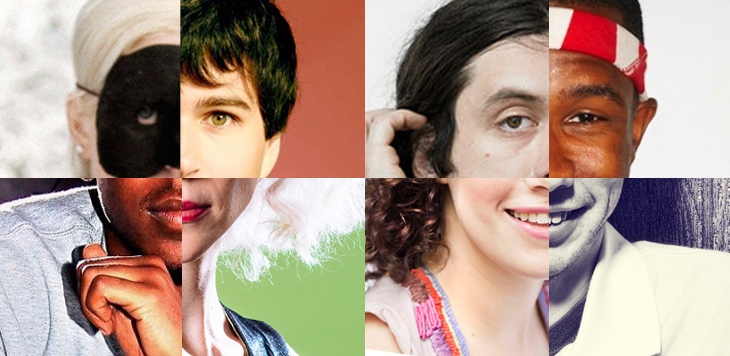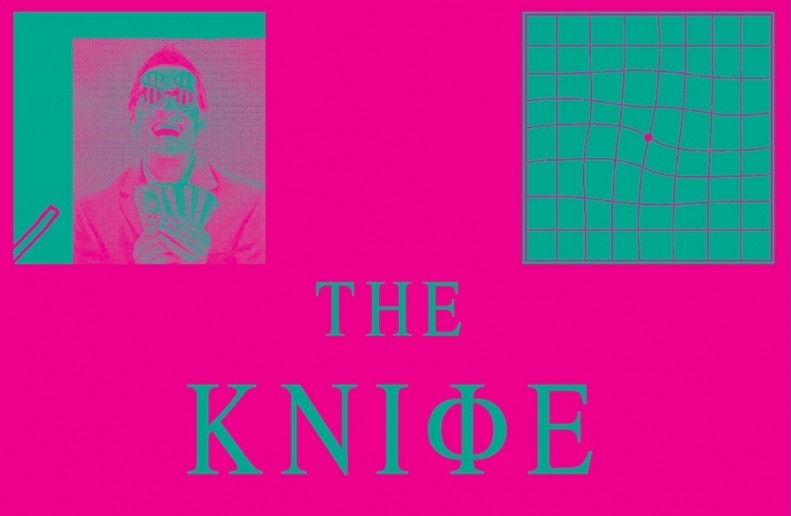Top 100 Albums of the Decade So Far (2010-2014)

 20. Deafheaven – Sunbather
20. Deafheaven – Sunbather
(2013; Deathwish Inc.)
One of the most beautiful albums to ever bear the metal banner – which of course means it’s an album the populace debated heavily about whether it was metal or not – Deafheaven’s Sunbather didn’t just master the form’s built-in tools of suspense and release. George Clarke and Kerry McCoy took a true composer’s approach and pushed black metal beyond the power chord, sneaking in hidden harmonics and melodies that kept the songs moving within their epic length. In retrospect Daniel Tracy’s relentless drumming are more heroic than on first impression. Deafheaven’s union of power and visionary ideas about how much can be accomplished with one of music’s strictest forms makes Sunbather a landmark recording any genre would be proud to claim as its own. – PP
 19. Japandroids – Celebration Rock
19. Japandroids – Celebration Rock
(2012; Polyvinyl)
Beginning and ending with fireworks couldn’t be a more appropriate way to compose this anthem-driven party album. Two members; one on drums (David Prowse) and the other on guitar (Brain King) combine their vocals to bring fun, infectious, and uplifting minimalist rock ‘n roll alive. The lo-fi production on songs like “For the Love of Ivy,” the adrenaline pumping “The House that Heaven Built,” and myriad call-and-response vocals along the way make this charismatic duo sound like they’re having the time of their lives, and their celebratory spirit is undeniably contagious. – DP
 18. Robyn – Body Talk
18. Robyn – Body Talk
(2010; Konichiwa/Cherrytree)
This decade, we may have finally witnessed the beginning of the end of bullshit token appreciation of female musicians and their empowerment within the industry. If asked to name one performer who embodies this suggestion, we’ll forgive you if the first to come to mind is Beyoncé. Hopefully the second is Robyn, whose three albums in 2010 culminated with Body Talk, putting together some of her favorites from the first two with even newer songs. If it doesn’t already sound like a greatest-hits package—”Fembot,” “None of Dem,” “Dancing on My Own”—it’s at least Sweden’s contribution to credible electronic pop. If you’ve ever called someone a “tough bitch” and meant it as a compliment, that’s how Robyn comes across here. – AB
 17. Janelle Monáe – The Archandroid
17. Janelle Monáe – The Archandroid
(2010; BadBoy)
The ArchAndroid is, for all intents and purposes, a science fiction rock opera — comprising two sections of what were dubbed “suites” at their inception. Like any good sci-fi story, Monáe uses a futuristic setting and a being (android) that doesn’t yet (quite) exist to illustrate the social and political issues that are troubling us today. From the beginning, Monáe was very up front about the symbolism and her intent. She’s an adept musician, crafting complex beats and melodies, supported by her team of Wondaland adherents. She holds nothing back and this is most clear in her singing, which is always soulful and passionate, meandering between slow and croony, as on “Sir Greendown,” and the pensive “Oh, Maker” before jumping into sharp and unrelenting styles like the thumping “Tightrope,” the percussive, bombastic “Cold War” and bass-funky “Dance or Die.” – NG
 16. Grimes – Visions
16. Grimes – Visions
(2012; Arbutus/4AD)
In 2012, I committed one of the deadly sins of music journalism — I wasn’t completely blown away by Visions on first listen. I had heard a lot of ‘just OK’ lo-fi electro-pop at that point in my life, and had conditioned myself towards a skepticism of the genre’s newcomers, many of which I believed were praised for their aesthetic alone, not necessarily for any transcendent talent or message. But I’m still fair: I’ll give anything a few repeat listens. And it’s in that further exploration that I plundered beyond aesthetic and into the golden core of Visions. For every innovative effect or sample-worthy moment Grimes crafts, there are a dozen more instances of simply evocative, devastatingly human songwriting. In the end, Visions was even better than all the hype made it out to be. – ATB
 15. Arcade Fire – The Suburbs
15. Arcade Fire – The Suburbs
(2010; Merge)
When Arcade Fire won a Grammy for Album of the Year in 2011 for The Suburbs, an uninitiated mainstream audience gasped in surprise. What? For the fans — already familiar with the robust group whose work ranged from low-key literate pieces to bombastic yet articulate anthems worthy of a football stadium — it was only surprising that the industry jury would recognize something borne from even a great indie label like Merge. The Suburbs is the soundtrack of the middle class, cataloguing the dreams and nostalgia of white-collar working men and women, their longing for kids, money, beauty and something permanent in the expanding and contracting universe of materialism. It plays almost like a rock opera, unified by the titular theme of life in the suburbs, cruising through tracks like “Modern Man,” “City with No Children,” “Suburban War,” “We Used to Wait,” “Sprawl I (Flatland),” and “Sprawl II (Mountains Beyond Mountains).” What The Suburbs lacks in exposition it makes up for in colorful, almost overblown imagery. It is, unquestionably a clever, painstaking work of art that hits the ear easy. – NG
 14. The Knife – Shaking the Habitual
14. The Knife – Shaking the Habitual
(2013; Brille/Mute)
This is a fascinating set of art. It’s also a farewell fire statement from a Swedish sibling duo — Karin Dreijer Andersson and Olof Dreijer — that ripped the status quo to shreds. It is not enough to call Shaking the Habitual “electronic music.” Dark, coagulated mind fuckery is more like it. But you can dance to these dreadful sounds just as much as being scared by them — except the 19-minute ambient drone, “Old Dreams Waiting To Be Realized,” right in the middle of the album, which is a true exercise of the listener’s patience. If you can get through that, then listening to the rest of Shaking the Habitual should be a breeze, albeit a gust of blatantly detuned aggression and decadent corruption. The triple-LP comes with two foldouts of a comic book called “End Extreme Wealth,” which spins the right wing’s dissertation against the poor on its axis. The Dreijer’s are extremists who hate the royal family, neo-liberalism, and the commercial homogenization of the music industry. The Knife shutdown its mind-bending operation last November, and we can probably credit their pessimistic view of the future for that. The Knife is officially dead; Shaking the Habitual is the sound of them taking one last bizarre and beautiful writhe on the ground.- JJM
 13. Beach House – Bloom
13. Beach House – Bloom
(2012; Sub Pop)
There’s a sense of immensity to Beach House’s Bloom that few other albums possess. Almost every part of this record drips with reverb, from the gliding basslines to Alex Scally’s ethereal guitar work to (especially) Victoria Legrand’s voice, which blankets the entire album in a bright, silken glow. Bloom’s arena-sized production elevates Legrand’s emotional lyricism to epic proportions. Take “Wishes,” for example, which transforms the intimate melancholy of the lyrics (“The roses on the lawn / Won’t know which side you’re on / On that hill / Forever still”) into something fitting for an Eric Wareheim-directed music video, which potently combines the band’s surreal aesthetic and the scale of the band’s sound. – SP
 12. M83 – Hurry Up We’re Dreaming
12. M83 – Hurry Up We’re Dreaming
(2011; Mute)
After Saturdays=Youth, it was unclear where Anthony Gonzalez would go next with M83. Early on, he described Hurry Up, We’re Dreaming as, “very, very, very epic.” That’s an understatement. While taking influence from Smashing Pumpkins’ Mellon Collie and The Infinite Sadness, this album is elevated much higher. From start to finish, Gonzalez plunges through each track with colossal sounds. His voice has dramatically changed and reaches a higher register. It’s almost as if his ambitious vocals emit high levels of energy in addition to the music. Soon after this release, the record would crack the Billboard album chart and Gonzalez would go on to compose music for films. There’s no need for Gonzalez to hurry up anymore; his dreams are now reality. – GM
 11. Death Grips – The Money Store
11. Death Grips – The Money Store
(2012; Epic)
Death Grips did a lot to get under people’s skin in the last five years, but they were awfully generous with their music, having dropped no fewer than four free albums or mixtapes since 2011. So, I can’t help but find it fascinating that the one they didn’t release for free, 2012’s The Money Store, is the best of the bunch. Chaotic and antagonistic while maintaining an unusual reverence for hooks and accessibility, The Money Store is Death Grips at their artistic peak, dropping banger after banger in a dystopian nightmarescape where there could be a literal explosion around every corner. “Get Got” pops like machine-gun fire; “Hustle Bones” is sensory overload; and “Hacker” compresses their unsettling and unwieldy anarchistic tendencies into one concise party anthem. Somehow, after breaking up for good, the group keeps releasing new music, suggesting they could be zombies or part of the Matrix or something. And they may well have another undead classic in them, but this is the one with all the coconuts, bitch. – JT


Such bias in this list. Indie and alternative music is all right to listen to but this list is severely lacking in the genre of metal. For example listen to Mastodon’s The Hunter. True art work. Wake up because there is more out there than your hipster junk.
We included Baroness, Pallbearer, Converge, KEN Mode and Deafheaven. Keep in mind that we’re not exclusively a metal site, and that some of our writers are more steeped in hip-hop, electronic or what have you.
The Hunter is a good album, though, certainly.
What an unoriginal list.